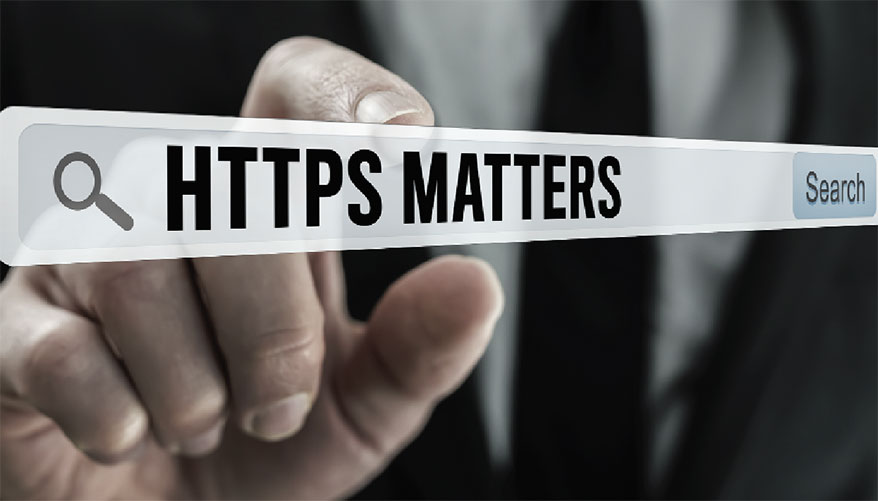
So we’ve all heard the terms “Blue Lives Matter,” “Black Lives Matter,” and “All Lives Matter.” I am not here to argue any of the pros or cons on any of those but I will tell you one thing: SSL matters. In the grand scheme of things, no one is taking shots at websites, even ECP websites (not that I know of, anyway). However, having an SSL, or Secure Socket Layer, is becoming ever more important when it comes to websites and how Google looks at them.
What is an SSL Certificate? Simply put, you know that green lock that appears on your browser when you buy something online? That is a symbol for an SSL Certificate. An SSL Certificate provides secure, encrypted communication between a website and your Internet browser. With an unsecured HTTP connection, third parties can snoop on any traffic passing between your reader’s browser and your web server. Obviously, this is a huge issue if you’re passing sensitive information like credit card numbers or confidential patient information. For years, SSL Certificates have been the de facto protocol installed on websites that require end users to submit sensitive information over the Internet such as passwords and credit card details. When you see a website using an SSL Certificate, you will see the HTTP on the page change to HTTPS (for secure).
Way back in 2014, Google announced it was giving a small ranking benefit to those websites that use a 2048-bit SSL Certificate. Those of us who long for every boost we can get went off to purchase an SSL Certificate with our web hosting, running anywhere from $50 to $1,500 depending on the needs of the website. Those sites that don’t conduct e-commerce, of course, didn’t and don’t need a fancy SSL Certificate.
Google, however, is never one for leaving things alone. The search giant announced that from the beginning of 2017, sites that do not have an SSL not only face the possibility of being passed in search results by those that do, but would also be marked in the browser as “Not Secure” if they had any password or credit card fields. Google announced recently they are taking another step forward in the SSL realm. From October 2017, Google will start marking more sites as “Not Secure,” even in incognito mode, if they require any input from the end user on the website. The goal of Google is to eventually mark every website that doesn’t use an SSL Certificate as “Not Secure.” We are about to see the end of the HTTP page online.
Does your website have an SSL Certificate? Ask your website designer or web host how to get an SSL. Depending on the needs of your website, SSL Certificates are quite affordable. They’re even free with a new service from a company called Let’s Encrypt or from Cloudflare if you use their Content Delivery Network.
Advertisement
Daniel Feldman is CEO of dba designs & communications (dbadesigns.com), an optical website design and marketing firm specializing in improving eyecare practices, and a co-founder of the Visionaries Group.
This article originally appeared in the June 2017 edition of INVISION.